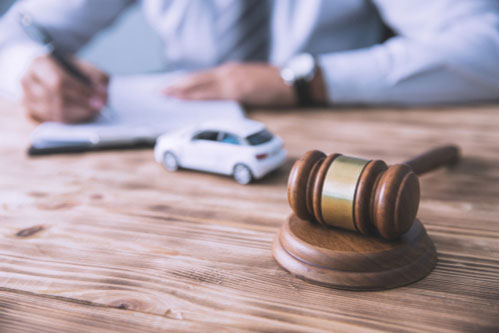Accidents, whether they occur on the road, in the workplace, or in other unexpected circumstances, can have profound and lasting effects on an individual’s mental health.
Among the range of potential psychological impacts, Post-Traumatic Stress Disorder (PTSD) is one of the most significant and challenging conditions that can arise. PTSD can disrupt daily life, hinder personal relationships, and impede one’s ability to function effectively.
For many, the psychological scars left by such traumatic events are as debilitating as any physical injuries sustained.
Understanding how to seek compensation for PTSD after an accident is crucial for those affected. An important aspect to consider is the average PTSD settlement, which helps potential claimants understand the compensation amounts they might expect.
Navigating the complex landscape of legal claims and insurance processes can be daunting, but it is essential for obtaining the financial support needed to cover medical expenses, therapy costs, and other related damages.
This blog post will explore the various avenues for compensation available to individuals suffering from PTSD due to accidents, provide insights into the legal requirements and processes involved, and offer guidance on how to effectively pursue a claim.
By shedding light on these aspects, we aim to help accident victims understand their rights and take the necessary steps to secure the compensation they deserve.
What is Post Traumatic Stress Disorder
Post-Traumatic Stress Disorder (PTSD) is a serious mental health condition that can develop after experiencing or witnessing a traumatic event.
Characterized by intense, distressing symptoms, PTSD can significantly impact an individual’s ability to lead a normal life. The disorder often emerges following events such as severe accidents, violent incidents, or other high-stress situations that leave lasting emotional scars.
Symptoms of PTSD
PTSD symptoms can be broadly categorized into several types:
- Re-experiencing: Individuals may relive the traumatic event through flashbacks, nightmares, or intrusive thoughts. These symptoms can make it feel as though the trauma is happening again, leading to heightened anxiety and distress.
- Avoidance: Those with PTSD often avoid places, people, or activities that remind them of the trauma. They might also experience emotional numbness, making it difficult to connect with others or engage in daily activities.
- Hyperarousal: This includes symptoms such as increased irritability, difficulty sleeping, hypervigilance, and exaggerated startle responses. Individuals may feel constantly on edge and have trouble relaxing.
- Negative Changes in Mood and Cognition: PTSD can lead to persistent negative emotions, such as fear, guilt, or shame. It may also affect a person’s ability to remember aspects of the traumatic event and alter their perception of themselves or others.
Impact on Daily Life
The effects of PTSD can be profound, interfering with personal relationships, work performance, and overall quality of life. Individuals may struggle with daily tasks, experience persistent anxiety, and find it challenging to engage in activities they once enjoyed.
Recognizing the symptoms of PTSD and understanding its impact is crucial for those seeking compensation after an accident. Accurate diagnosis and documentation of the condition play a vital role in building a strong case for obtaining the financial support needed for treatment and recovery.
Causes of PTSD in Car Accident Victims
Post-Traumatic Stress Disorder (PTSD) can arise from a variety of traumatic experiences, and accidents are a significant source of such stress.
When individuals are involved in accidents, whether on the road, in the workplace, or elsewhere, the psychological impact can be profound and long-lasting.
Understanding the causes of PTSD in accident victims is essential for comprehending why some people develop this condition and how it affects their lives.
Types of Accidents Leading to PTSD:
- Motor Vehicle Accidents: Car crashes, motorcycle collisions, and truck accidents can be particularly traumatic, often involving high-speed impacts and severe injuries. Witnessing or experiencing these violent events can lead to significant psychological distress. A car accident can lead to PTSD symptoms, including emotional and psychological impacts.
- Workplace Accidents: Industrial accidents, falls, machinery malfunctions, or exposure to hazardous materials can be deeply unsettling. Employees who experience or witness such incidents may develop PTSD due to the severe injury or fatality involved.
- Slip and Fall Accidents: Even accidents that seem less severe can lead to PTSD, especially if they result in significant injury or occur in a particularly distressing manner.
Psychological Impact of Trauma:
- Violence and Threat: Accidents that involve violence or pose a direct threat to life can leave lasting emotional scars. The sense of vulnerability and fear during such events can contribute to the development of PTSD.
- Severity of Injuries: The extent of physical injuries sustained in an accident can also influence the likelihood of developing PTSD. Severe or life-threatening injuries often exacerbate emotional trauma.
- Witnessing Trauma: Sometimes, witnessing an accident, even without direct involvement, can be traumatic enough to trigger PTSD. The emotional burden of seeing others in distress or experiencing severe injuries can lead to significant psychological consequences. The prevalence of PTSD among survivors of car accidents and the lasting emotional distress they can cause should not be underestimated.
Compounding Factors:
- Previous Trauma: Individuals with a history of prior traumatic experiences may be more susceptible to developing PTSD after a new accident. Previous trauma can exacerbate the effects of subsequent incidents.
- Lack of Support: The absence of a strong support system or difficulties in coping with the aftermath of an accident can also contribute to the development of PTSD. Recognizing car accident PTSD and the need for mental health treatment and legal support is crucial.
Understanding the causes of PTSD in accident victims highlights the need for comprehensive support and compensation.
By addressing the psychological impact of accidents, victims can better navigate the process of seeking compensation and obtaining the necessary care and support for recovery.
Legal Grounds for Compensation
Securing compensation for Post-Traumatic Stress Disorder (PTSD) following an accident involves understanding the legal grounds on which claims can be based.
PTSD is recognized as a serious mental health condition that can significantly impair one’s quality of life, and the legal system provides avenues for compensation to address this impact.
Here’s an overview of the legal grounds for pursuing compensation for PTSD:
Personal Injury Claims:
- Basis of Claim: In personal injury cases, plaintiffs can seek compensation for a range of damages, including those related to PTSD. To establish a claim, the injured party must prove that the defendant’s negligence or intentional actions directly caused the accident and subsequent PTSD.
- Evidence Required: Key evidence includes medical records documenting the PTSD diagnosis, expert testimony from mental health professionals, and a clear link between the accident and the psychological trauma experienced. It is crucial to consult a car accident attorney to gather evidence and support claims for PTSD settlements.
Workers’ Compensation Claims:
- Basis of Claim: Workers who develop PTSD as a result of a workplace accident may be eligible for compensation through workers’ compensation. This system covers medical expenses and a portion of lost wages, and it may also provide benefits for mental health conditions that arise from work-related incidents.
- Evidence Required: Documentation of the workplace accident, medical evidence of PTSD, and a connection between the work incident and the psychological impact are necessary. Some states have specific provisions for mental health claims within the workers’ compensation framework.
Insurance Claims:
- Basis of Claim: Insurance policies, including those for auto, health, or liability coverage, may provide compensation for PTSD if the policy covers mental health injuries. The claimant must demonstrate that the PTSD was a direct result of the accident covered by the policy.
- Evidence Required: Insurers typically require comprehensive documentation, including medical evaluations and treatment records, to substantiate the claim for PTSD-related compensation.
Legal Settlements:
- Basis of Claim: Settlements can be negotiated in personal injury or workers’ compensation cases where parties agree on a compensation amount without going to trial. Settlements may cover both economic and non-economic damages, including those related to PTSD.
- Evidence Required: A solid case with well-documented evidence of PTSD and its impact on the claimant’s life strengthens the position during settlement negotiations. A car accident lawyer plays a crucial role in negotiating fair settlements and ensuring accessible legal support.
Civil Litigation:
- Basis of Claim: In cases where compensation through insurance or workers’ compensation is inadequate or denied, victims may pursue civil litigation against the responsible parties. This involves filing a lawsuit to seek damages for PTSD and other related harms.
- Evidence Required: Similar to personal injury claims, evidence must include a diagnosis of PTSD, proof of the connection to the accident, and documentation of how the condition has affected the claimant’s life and ability to function. The challenges and processes involved in securing a car accident PTSD settlement highlight the importance of obtaining a diagnosis from mental health professionals.
Navigating the legal landscape for PTSD compensation requires understanding these grounds and gathering the necessary evidence to support a claim.
By pursuing these legal avenues, individuals can work towards obtaining the financial and emotional support needed to manage and recover from PTSD.
Proving PTSD Diagnosis in Legal Claims
Proving Post-Traumatic Stress Disorder (PTSD) for legal claims involves establishing a clear connection between the accident and the psychological impact, demonstrating the severity of the condition, and providing evidence that supports the claim for compensation.
Here are the essential steps and elements involved in proving PTSD for legal claims:
Medical Diagnosis and Documentation:
- Clinical Evaluation: The cornerstone of proving PTSD is obtaining a diagnosis from a qualified mental health professional, such as a psychiatrist or psychologist. This evaluation should include a detailed assessment of symptoms and how they align with the diagnostic criteria for PTSD.
- Medical Records: Comprehensive medical records are crucial. They should include the initial diagnosis, treatment plans, progress reports, and any prescribed therapies or medications. These documents help establish the existence and persistence of PTSD. Additionally, mental health treatment is essential for individuals experiencing PTSD following an accident, as it supports their recovery and strengthens their legal claims.
Link Between Accident and PTSD:
- Causal Connection: To succeed in a legal claim, it must be demonstrated that the PTSD is directly related to the accident. This involves showing that the traumatic event caused or significantly contributed to the development of PTSD.
- Incident Documentation: Providing evidence of the accident, such as police reports, witness statements, or accident reconstruction reports, can support the claim that the incident was severe enough to lead to PTSD.
Expert Testimony:
- Mental Health Experts: Expert testimony from mental health professionals can be instrumental in explaining the nature of PTSD, its symptoms, and how they relate to the accident. These experts can also provide insights into the long-term impact of PTSD on the claimant’s life.
- Vocational Experts: In some cases, vocational experts may testify about how PTSD affects the claimant’s ability to work and perform daily activities. Their testimony can help quantify the economic impact of the condition.
Impact on Daily Life:
- Personal Testimony: Personal accounts from the claimant about how PTSD affects their daily life, relationships, and overall well-being are valuable. This testimony can illustrate the real-world implications of the disorder and support claims for non-economic damages. Recognizing emotional injuries is significant as they deeply impact personal relationships and work performance.
- Witness Statements: Statements from family members, friends, or colleagues who have observed changes in the claimant’s behavior and functioning can corroborate the impact of PTSD.
Treatment and Rehabilitation:
- Proof of Ongoing Treatment: Documentation of ongoing treatment and rehabilitation efforts, including therapy sessions, support groups, and medication, helps to show that the claimant is actively seeking help and that the PTSD is a serious, ongoing condition. Highlighting the importance of various methods for treating PTSD and the potential costs associated with therapy and medications is crucial for a comprehensive claim.
- Treatment Costs: Providing records of treatment costs and related expenses supports claims for financial compensation and demonstrates the economic burden of managing PTSD.
Comprehensive Evidence:
- Collecting Evidence: Gather all relevant evidence, including medical records, expert testimonies, personal and witness statements, and documentation of treatment costs. A well-rounded collection of evidence strengthens the case and improves the chances of a successful claim.
Proving PTSD for legal claims requires a combination of medical documentation, expert testimony, personal accounts, and evidence linking the condition to the accident.
By thoroughly documenting the impact of PTSD and its connection to the traumatic event, claimants can build a strong case for obtaining the compensation they need to address their condition.
Types of Compensation Available
When seeking compensation for Post-Traumatic Stress Disorder (PTSD) resulting from an accident, several types of damages may be available, depending on the specifics of the case and the legal framework under which the claim is filed.
Understanding these types of compensation can help claimants better navigate the process and ensure they receive the financial support needed for recovery.
Here’s an overview of the different types of compensation that may be available:
Medical Expenses:
- Coverage: This includes reimbursement for all medical costs related to the diagnosis and treatment of PTSD. It encompasses expenses for therapy sessions, psychiatric evaluations, medications, and any other mental health services required. Additionally, costs related to PTSD after a car accident can be included in compensation claims, as this condition significantly impacts victims’ mental health and daily functioning.
- Documentation: Claimants should provide detailed records of all medical treatments, including bills and receipts, to substantiate these expenses.
Lost Wages:
- Coverage: Compensation for lost wages accounts for income that the claimant was unable to earn due to their PTSD. This includes time missed from work for therapy appointments and any periods when the claimant was unable to work due to the severity of their symptoms.
- Documentation: Proof of lost income can be provided through pay stubs, employment records, and a statement from an employer detailing the time missed and its impact on earnings.
Pain and Suffering:
- Coverage: Pain and suffering damages are awarded for the emotional distress and mental anguish experienced as a result of PTSD. This type of compensation is intended to address the non-economic impact of the condition on the claimant’s quality of life.
- Assessment: Calculating pain and suffering is often subjective and may involve testimony from mental health professionals and personal accounts of how PTSD affects daily life.
Loss of Enjoyment of Life:
- Coverage: This compensation addresses the impact of PTSD on the claimant’s ability to engage in activities they once enjoyed or found fulfilling. It reflects the reduced quality of life and changes in personal interests due to the condition.
- Documentation: Evidence can include personal testimonies, changes in hobbies or social activities, and expert opinions on how PTSD impairs the claimant’s enjoyment of life.
Future Medical Costs:
- Coverage: This type of compensation covers anticipated future medical expenses related to the ongoing treatment of PTSD. It accounts for long-term therapy, future medications, and other potential treatments required over time.
- Documentation: Prognoses from mental health professionals and estimates of future treatment costs are used to support claims for future medical expenses.
Loss of Earning Capacity:
- Coverage: If PTSD significantly affects the claimant’s ability to perform their job or pursue career opportunities, compensation for loss of earning capacity may be awarded. This addresses the long-term impact on the claimant’s ability to earn a living.
- Documentation: Evidence may include vocational assessments, changes in employment status, and projections of future earning potential.
Legal Costs:
- Coverage: In some cases, compensation may also include reimbursement for legal costs incurred while pursuing the claim. This can cover attorney fees, court costs, and other legal expenses.
- Documentation: Providing a detailed account of legal expenses and associated costs is necessary for reimbursement.
Each type of compensation plays a role in addressing the different ways in which PTSD affects a claimant’s life.
By understanding the various forms of compensation available, individuals can better prepare their claims and work towards obtaining the necessary financial support for their recovery and well-being.
Steps to Take When Pursuing Compensation
Pursuing compensation for Post-Traumatic Stress Disorder (PTSD) following an accident involves a series of critical steps to ensure that your claim is well-supported and effectively presented.
By following these steps, you can improve your chances of obtaining the compensation you deserve for the emotional and psychological impact of the accident.
Here’s a structured approach to help guide you through the process:
- Seek Professional Medical Help:
- Action: Obtain a comprehensive evaluation from a qualified mental health professional, such as a psychiatrist or psychologist. Accurate diagnosis and documentation of PTSD are crucial for building a strong claim.
- Importance: A professional diagnosis will provide the medical evidence needed to support your claim and ensure you receive appropriate treatment for your condition.
- Document Your Symptoms and Treatment:
- Action: Keep detailed records of your PTSD symptoms, treatment plans, and progress. This includes notes from therapy sessions, medication prescriptions, and any other relevant medical documentation.
- Importance: Comprehensive documentation helps to substantiate the severity of your PTSD and the ongoing impact it has on your life.
- Gather Evidence of the Accident:
- Action: Collect and organize all evidence related to the accident, such as police reports, witness statements, and photographs of the scene. This evidence establishes the connection between the accident and your PTSD.
- Importance: Demonstrating a direct link between the accident and your PTSD is essential for validating your claim.
- Assess the Impact on Your Life:
- Action: Document how PTSD has affected your daily life, work, and relationships. Include personal accounts and statements from family, friends, or colleagues who can attest to the changes in your behavior and functionality.
- Importance: This evidence helps to illustrate the non-economic damages and the overall impact of PTSD on your quality of life.
- Consult with a Legal Professional:
- Action: Seek advice from an attorney who specializes in personal injury or PTSD-related claims. A legal professional can provide guidance on the process, help gather evidence, and ensure your claim is properly filed.
- Importance: An experienced attorney can navigate the legal complexities, increase the likelihood of a successful claim, and assist in negotiating fair compensation.
- File Your Claim:
- Action: Submit a formal claim with the relevant insurance company or legal entity. Ensure that all required documentation, including medical records, evidence of the accident, and personal statements, are included.
- Importance: Proper filing ensures that your claim is considered and processed in a timely manner.
- Prepare for Possible Mediation or Court Proceedings:
- Action: Be ready for mediation sessions or court hearings if necessary. This may involve presenting evidence, attending hearings, and negotiating settlements.
- Importance: Preparation for these proceedings helps to effectively advocate for your rights and secure appropriate compensation.
- Monitor Your Claim’s Progress:
- Action: Regularly follow up on the status of your claim with your attorney or the insurance company. Stay informed about any updates or required actions.
- Importance: Keeping track of your claim ensures that it remains active and that any issues are addressed promptly.
- Review and Accept Settlement Offers:
- Action: Evaluate any settlement offers carefully with the help of your attorney. Consider whether the offer adequately covers your medical expenses, lost wages, pain and suffering, and other damages.
- Importance: Accepting a fair settlement is crucial to ensuring that you receive appropriate compensation for your PTSD.
- Continue Treatment and Document Progress:
- Action: Maintain ongoing treatment for PTSD and continue to document your progress. This can support ongoing claims for compensation and demonstrate your commitment to managing the condition.
- Importance: Ongoing documentation reinforces the persistence of your symptoms and the need for continued support.
By following these steps, you can effectively pursue compensation for PTSD resulting from an accident.
Each step plays a crucial role in building a solid case, ensuring that you receive the support and financial relief necessary to manage your condition and recover.
Preventative Measures and Support
Addressing Post-Traumatic Stress Disorder (PTSD) after an accident involves not only seeking compensation but also focusing on preventative measures and support strategies to mitigate the impact of the condition.
By implementing proactive steps and accessing appropriate support resources, individuals can enhance their recovery and reduce the risk of PTSD developing or worsening.
Here’s how you can approach preventative measures and support for managing PTSD:
- Early Intervention and Support:
- Action: Seek professional help as soon as possible after an accident. Early intervention with a mental health professional can significantly reduce the severity of PTSD symptoms and prevent them from becoming chronic.
- Importance: Early treatment can address symptoms before they escalate and provide strategies to cope with stress and trauma effectively.
- Engage in Trauma-Informed Therapy:
- Action: Participate in trauma-informed therapy, such as Cognitive Behavioral Therapy (CBT) or Eye Movement Desensitization and Reprocessing (EMDR). These therapeutic approaches are specifically designed to address trauma and PTSD.
- Importance: Specialized therapies can help process traumatic experiences, manage symptoms, and develop coping mechanisms tailored to your specific needs.
- Build a Support Network:
- Action: Connect with family, friends, support groups, or online communities who understand PTSD and can offer emotional support. Sharing experiences and receiving encouragement can be invaluable for recovery.
- Importance: A strong support network provides validation, reduces feelings of isolation, and offers practical advice and empathy.
- Practice Self-Care and Stress Management:
- Action: Implement self-care routines and stress management techniques, such as mindfulness, meditation, regular exercise, and healthy eating. These practices can help maintain mental well-being and reduce PTSD symptoms.
- Importance: Self-care and stress management improve overall mental health, enhance resilience, and support the effectiveness of professional treatments.
- Educate Yourself About PTSD:
- Action: Learn about PTSD, its symptoms, and treatment options. Understanding the condition can help you recognize signs early and make informed decisions about your care.
- Importance: Knowledge empowers you to advocate for yourself, seek appropriate treatment, and manage your condition proactively.
- Utilize Community Resources:
- Action: Take advantage of community resources such as local mental health organizations, non-profits, or helplines that offer support for trauma and PTSD.
- Importance: Community resources can provide additional support, educational materials, and access to affordable or free mental health services.
- Develop Coping Strategies:
- Action: Work with your therapist to develop and practice coping strategies for managing PTSD symptoms. This may include techniques for dealing with flashbacks, anxiety, and triggers.
- Importance: Effective coping strategies help manage symptoms and improve your ability to handle stressful situations and emotional challenges.
- Maintain Open Communication with Your Healthcare Providers:
- Action: Keep open lines of communication with your healthcare providers about your symptoms, progress, and any concerns. Regular updates and consultations ensure that your treatment plan remains effective.
- Importance: Ongoing communication helps to adjust treatment plans as needed and ensures that you receive the most appropriate care.
- Address Financial and Legal Concerns:
- Action: Seek guidance on managing financial and legal aspects related to your PTSD, such as understanding insurance coverage and pursuing compensation. Professional advice can help alleviate additional stress.
- Importance: Addressing these concerns reduces financial and legal burdens, allowing you to focus more on your recovery.
- Set Realistic Goals and Celebrate Progress:
- Action: Set achievable goals for your recovery and celebrate milestones along the way. Recognizing progress, no matter how small, can boost motivation and positivity.
- Importance: Setting goals and celebrating achievements fosters a sense of accomplishment and encourages continued efforts toward recovery.
- Implementing these preventative measures and support strategies can significantly enhance your ability to manage PTSD after an accident. By focusing on early intervention, professional therapy, and self-care, you can better navigate the challenges of PTSD and work towards a healthier, more fulfilling life.
Conclusion
Navigating the path to compensation for PTSD following an accident can be both complex and emotionally challenging.
Understanding PTSD, its implications, and the legal framework for seeking compensation is crucial for those affected by this condition.
By being informed about the nature of PTSD, the types of compensation available, and the steps required to pursue a claim, individuals can better advocate for their rights and work towards obtaining the support they need.
From demonstrating the impact of PTSD on daily life to exploring treatment options and preventative measures, addressing PTSD requires a comprehensive approach.
Legal claims for PTSD compensation involve proving the condition’s severity and its direct connection to the accident, which necessitates thorough documentation and professional evidence.
Seeking timely medical attention and engaging in appropriate therapies are essential for both recovery and strengthening a compensation claim.
As you move forward, remember that support is available through mental health professionals, legal experts, and community resources.
Ensuring you have a strong support network and understanding your rights can significantly aid in your journey towards compensation and recovery.
By taking these steps, you can work towards achieving the relief and assistance you deserve, paving the way for a healthier and more stable future.















